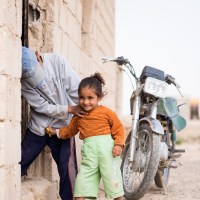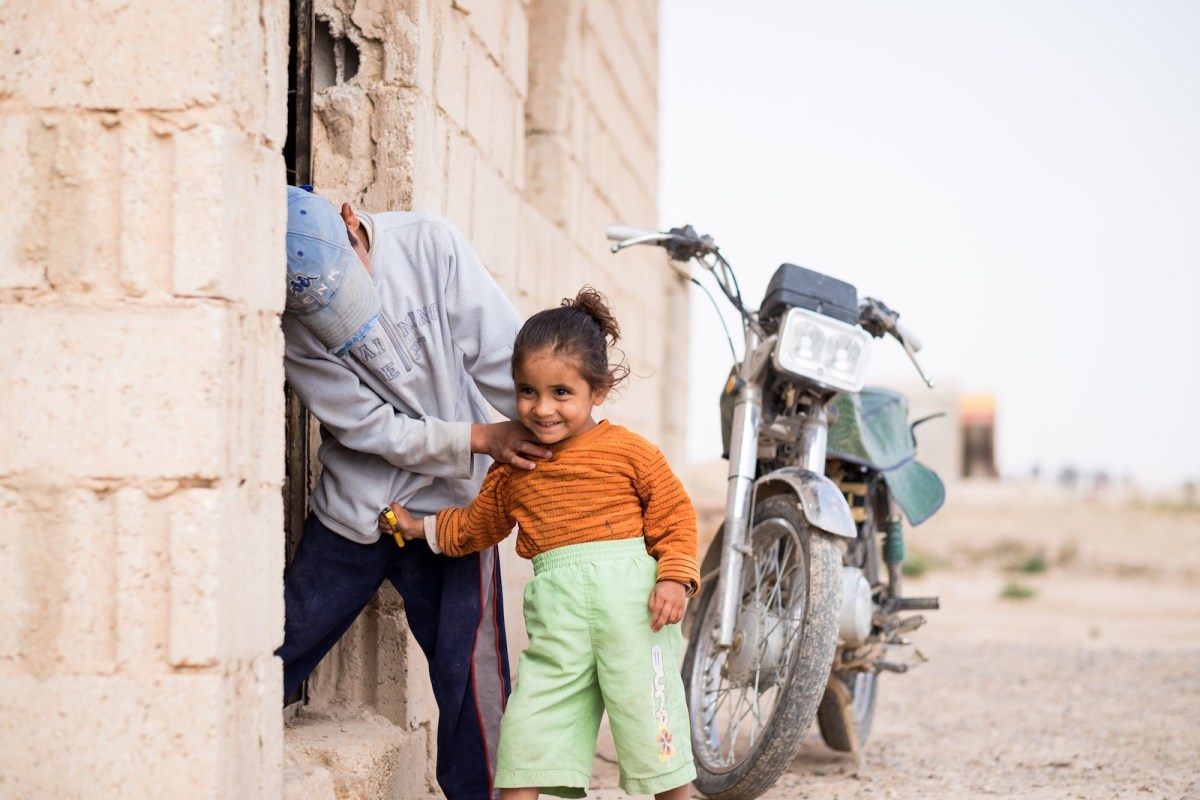This is beautiful little Shama. She barely made it out of her hometown in Syria alive.
We sit outside on a blue tarp. Kids bunch up around us, run away to play, and come back. We talk between the booms and thuds of bombs, not far enough away.
Thunder clouds drift in from the north, but a different thunder rumbles in the south—squint and you can see it: airstrikes and mortar fire rained on Shama’s hometown of Raqqa, Syria.
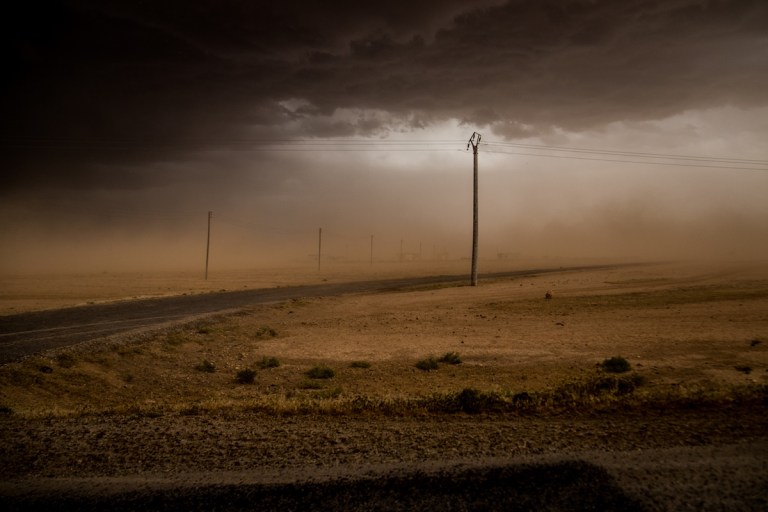
Raqqa, an infamous ISIS-held city in northeastern Syria—until recently, considered their capital. For more than three years, it was a base of operations for the terrorist group, where they masterminded bombings, executions, and military experiments that led to genocide and the deaths of countless thousands.
It’s the city where Shama left her dolls.
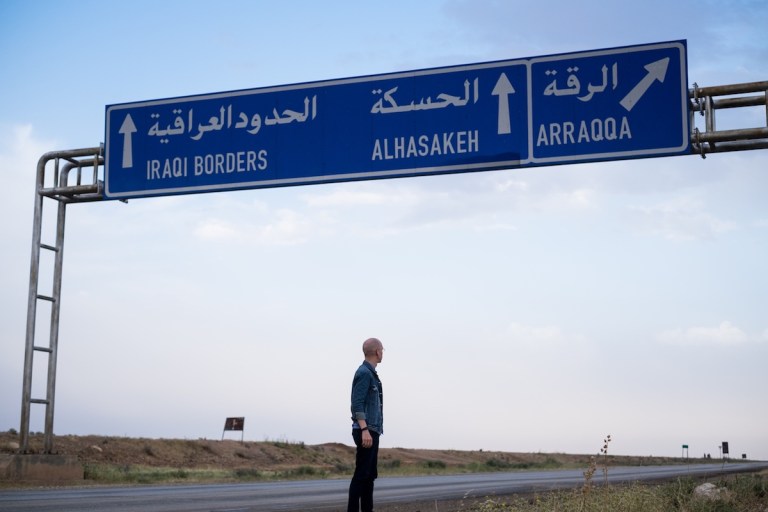
A boy sets coffee on the blue tarp, and we take sips as Shama’s family tells us their story: early before dawn, eyes snapped open as daddy shook his kids awake, and they all piled onto one little green motorbike and sped off. Shama’s dad was a motorcycle repairman. He loves his family. His wife was just about to pop, she was so pregnant.
Mom and dad could see the signs on the horizon: a storm was coming that they might not survive, so the family decided to leave before it was too late.
Frantic packing, grabbing only the essentials—which didn’t include Shama’s beloved doll—then a calm, masked terror at checkpoints on their way out of the city.
“We’re going to visit family in the country,” they lied to ISIS soldiers.
When we meet them, Shama’s family are living in a cinder block shed with nothing. We give them enough aid to help them weather things for a few months, but it feels so helpless—that cinder block hut.
I glance inside. The are buckets arranged in one corner and a couple blankets in the other. An older woman sits on one of the blankets, staring at the floor.
“This was a storage shed, but the owner is letting us live here,” Shama’s dad tells us.
Shama peeks out from the little building, giggles, and bolts back inside.
Families can sleep in the grit and hovels for awhile, but not forever. It’s that flickering reminder that “this is only temporary, we just need to make it a little longer.” That’s what keeps people going. This isn’t their life, and it’s anything but normal. We forget too easily that most displaced people in Iraq and Syria lived like you or me before: neighbors, holidays, cereal aisles, traditions, homes.
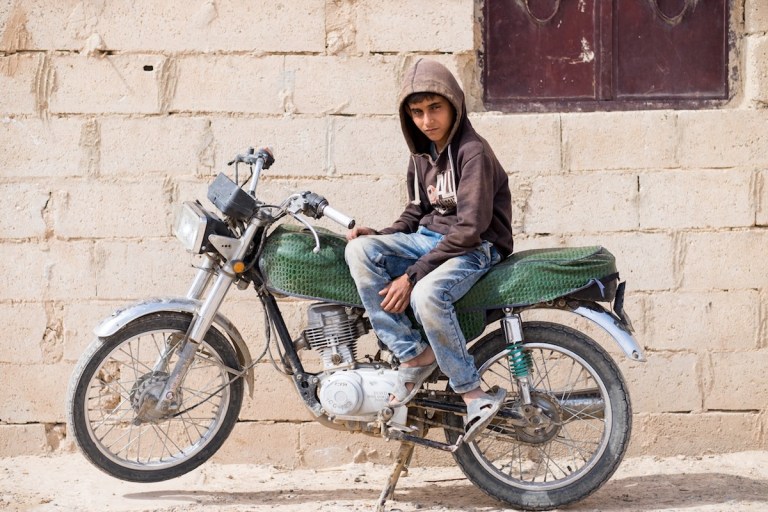
They aren’t used to living in filth.
What they look forward to is home. They can imagine it, a chance to return.
I imagine Shama’s father, laying next to his pile of kids in that little hut each night, watching their chests rise and fall in sleep, wondering if he made the right decision. Run or stay? Wait or act? Risk or hide out?
It doesn’t matter now—they made their choice. And someday they will go home, but they know home will never be the same now. That thunder on the horizon is easy to ignore after a while—it’s almost musical—but one of those mortars is bound to hit their house, and when it does, what then? Windows, the fridge, the front door, their wedding photos, Shama’s dolls—gone in an instant.
Will anyone be there to help them rebuild?
Will anyone show up for them, right as they’re needing home the most?
We can.
Imagine if we refused to say too far, too hard, too dangerous, or too difficult. Imagine if we chose to roll up sleeves and be the people who stick around after the war. Imagine if we stood alongside families like Shama’s as they leave the shed, face the mess, and start picking through the rubble, installing new doors and windows and filling new photo albums.
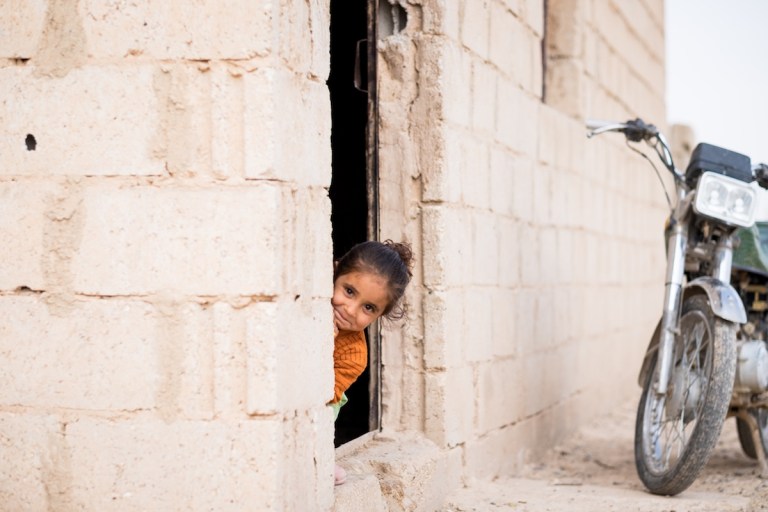
When you give, this is what you are saying with your life and your money: “We imagine a better home for you.”
You enable a family like Shama’s to rebuild. You make sure parents can rest easy and know they made the right decision, because they weren’t running toward nothing or no one, and they aren’t going home alone.
Thank you for continually being there for these families—both the ones who stay and those who run.
Thank you for showing up for Shama.

